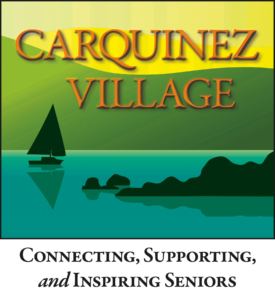By Judie Donaldson
You’ve heard of heart health, haven’t you? And dental health? How about brain health? Have you heard of that? It’s an important new concept that’s emerged because scientists have learned something new about our brains. Something revolutionary.
Until the last decade or so, it was believed that our brains developed in childhood and that was it. They essentially never changed. However, researchers unearthed something that showed that the very opposite is true. It’s called neuroplasticity. Neuro refers to the brain; plasticity refers to the ability of an organism to change. Neuroplasticity, then, indicates that our brains change. In fact, research has demonstrated that our brains are changing throughout our entire life span, even in old age.
The reality is that we are always influencing our brain. As we experience the world, practice habits and learn new information, our brains change, grow new connections, and repair broken ones. Our experiences keep our brains working, developing and learning. In other words, we play a significant role in how our brain’s function.
This is quite a change in our understanding, isn’t it? One of the implications of this new thinking is that we need to take care of our brains just as we take care of our hearts and other organs. This is why doctors have started talking about brain health.
I’m writing about it today because at Carquinez Village we want to support our members in being informed and living life as fully as possible. Our brains determine every aspect of our lives–our thoughts, emotions, movement, and memory. They work tirelessly for us 24 hours a day, 7 days a week. It makes sense to take care of them.
So, what is brain health? Brain health refers to the ability to remember, learn, play, concentrate, and maintain a clear, active mind. It’s being able to draw on the strengths of our brains—information management, logic, judgment, perspective, and wisdom. Simply, brain health is all about making the most of our brains and helping reduce some risks to it as we age. Risks to brain health include smoking, excessive use of alcohol, poor diet, insufficient sleep, lack of physical activity, and isolation or little social activity. These are not the only factors that influence our brain’s health. Our genetic makeup and environmental factors play roles, too. But we have plenty of room to make a difference.
The Cleveland Clinic promotes “Six Pillars of Brain Health” that revolve around lifestyle factors. Just as with heart health, your lifestyle has a profound impact on your brain. The Six Pillars are strategies that we can employ to nurture our brain’s health. They consist of: 150 minutes of good cardio exercise weekly, a nutritious diet such as a Mediterranean diet, regular medical check-ups and good health care management, eight to nine hours of sleep nightly, a strong brain reserve, and staying connected socially so that you’re not isolated.
A prescription for a brain health strategy is not yet written in stone. Along with the Six Pillars’ model, research has identified other strategies that can positively impact brain health. They include taking care of your mental health, dancing (a lot!), taking care of your heart, learning something new and challenging your mind, getting plenty of B12 in your diet, and–this seems unusual–drinking two cups of cocoa a day!
The Cleveland Clinic offered some other interesting tips as well. For example, if you eat better, you’ll think better, and up to three cups of coffee a day can improve brain health and possibly decrease your risk of dementia. Here’s something else that’s important. As we age, our brain experiences more stress. This, in turn, results in a process called oxidation, which damages brain cells. We need to protect against it. Here’s another intriguing tip. Short naps are good for your brain. A 10-to-15-minute afternoon nap can increase your cognitive function for the rest of the day! On the other hand, loneliness is bad for your brain. So, treasure your friends and family, and consider volunteering. (Carquinez Village is a great place to volunteer. Would you like to talk with one of our volunteers? Call 707-297-2472, or visit our website to learn more: http://www.carquinezvillage.org.)
I was curious when one of the Pillars referred to building a brain reserve. What does that mean, I wondered? It means what it implies. We have a brain reserve that begins to develop in childhood and gets stronger as we move through adulthood. People who continue to learn and develop new skills and interests are building and improving their brain reserve.
The National Institute of Health recommends picking one thing that you can do that may help your brain, add it to your day, and establish a routine. When you do, add another strategy and integrate it into your life. Want to try it? I will, and I think I’ll start with establishing a consistent routine to get an adequate amount of sleep. Next, I’ll focus on learning something new, and then I’ll try taking naps. Wait a minute. I’m getting ahead of myself. But, I’m motivated to do something to take better care of my brain. How about you?







Leave a Reply